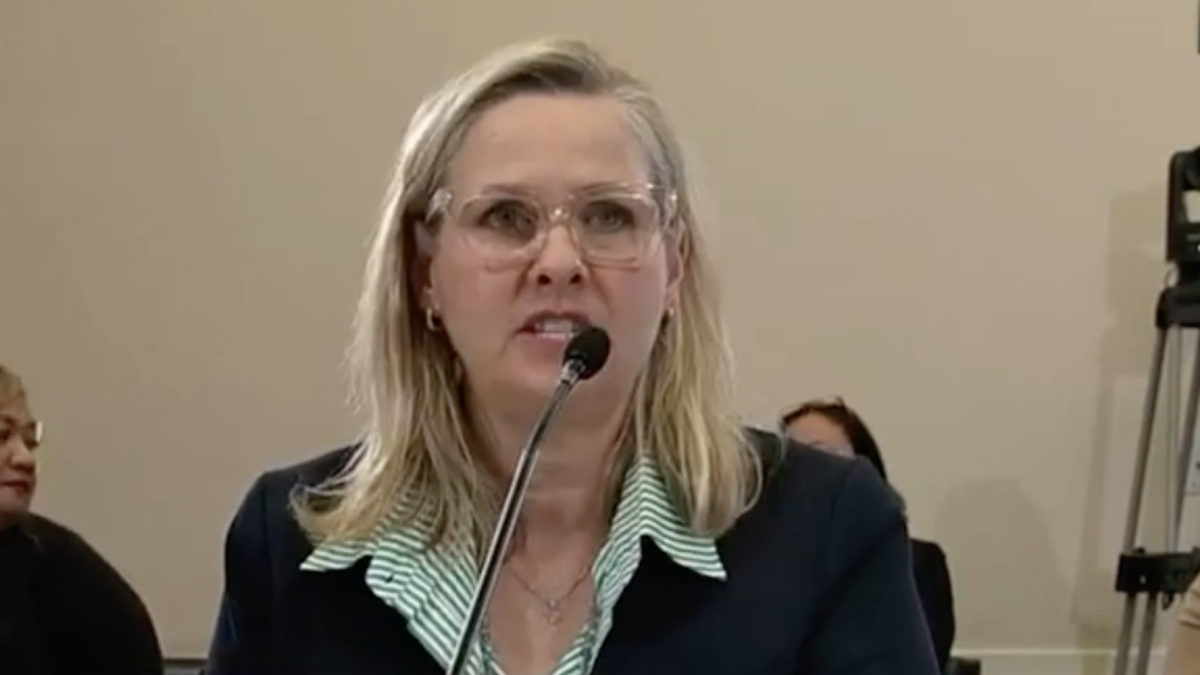
Emerson reminds us that “a foolish consistency is the hobgoblin of little minds, adored by little statesmen and philosophers and divines.” As much as it may pain conservatives to admit it, former Secretary of State Hillary Clinton is no “little statesman.”
Indeed, she and her campaign have shown a very clever inconsistency in their statements on l’affaire email since the story first broke in March 2015. Let’s not underestimate the considerable rhetorical acumen of Clinton and her defenders. Their apparent inconsistency displays an acute understanding of how to deploy legal terms of art before a public accustomed to the lesser form of discourse known as “plain English.”
As is well known, during her term as secretary of State, Clinton maintained a private email server—first in her Chappaqua home, later on third-party premises—to transact her government business. Some of her aides also apparently used the server. The State Department is processing thousands of emails for release in connection with certain Freedom of Information Act (FOIA) lawsuits.
Meanwhile, at the request of the Office of the Intelligence Community Inspector General, the FBI is reportedly conducting a probe of how Clinton and State Department employees handled classified information during Clinton’s term. The only justification the Clinton campaign has advanced for the elaborate set-up so far is “convenience.” Skeptics allege that a scheme to shield her correspondence from the FOIA and Federal Records Act seems the more likely motivation.
It Depends on What the Definition of ‘Is’ Is
Clinton’s evolving response to the scandal is instructive. On March 10, 2015, she stated, “I did not email any classified material to anyone on my email. There is no classified material. So I’m certainly well aware of the classification requirements and did not send classified material.” On July 24, the Intelligence Community and State Department inspectors general issued their own statement. The inspectors general found that, based upon their review of a narrow sample of emails, four had been determined to contain classified material.
Moreover, these messages “were not retroactively classified by the State Department” but rather “contained classified information when they were generated.” This would seem to be a fairly straightforward refutation of Clinton’s claim. Most commentators on the Right have characterized it as such.
Mirabile dictu, whether particular information is “classified” actually may depend on what your definition of “is” is. As noted above, the inspectors general have identified some correspondence containing information that was classified when generated. Other classified information in the Clinton emails appears not to have been classified at the time it was sent and received. Instead, the relevant agencies retroactively classified this information.
The government presumably took this step to prevent its disclosure in the ongoing FOIA lawsuits and thereby avoid (further) damage to national security. Is such information classified? Well, yes—it is. Nevertheless, conservatives should be prepared for a muted public reaction if the preponderance of classified material on the private server falls into the retroactive classification category. The Clinton campaign is already at pains to portray Clinton as the victim of the intelligence services’ bent toward “over-classification” and an “interagency dispute” over the proper role of secrecy in government affairs. The germ of a classic Clintonian narrative is planted.
I Can Send Anything So Long as It Isn’t Labeled ‘Classified’
On August 15, Clinton amended her position: “Most importantly, I never sent classified material on my email and I never received any that was marked classified” (emphasis added). She added that “the State Department has confirmed that I did not send nor receive [sic] material marked classified or send material marked classified.” This remains Clinton’s primary line of argument.
Recently, Clinton has been called to respond to revelations that some of her correspondence contained information linked to “special access programs.” “SAP” is a designation even higher than “top secret” and potentially includes exceedingly sensitive information on intelligence “sources and methods.” Clinton doubled down on January 20, 2016: “As the State Department has confirmed, I never sent or received any material marked classified, and that hasn’t changed in all of these months.”
At first blush, the “markings” argument appears unconvincing. Consider the following analogy. Lawyers regularly communicate in confidence with their clients. Such communications are sometimes subject to the attorney-client privilege. While it is considered good practice to designate privileged documents with a “Privileged & Confidential” watermark, this is not universally observed.
The failure of a lawyer to mark his advice as privileged, however, does not defeat his client’s right to assert the privilege. The canons of legal ethics do not hinge on any formalistic requirement to block-stamp a document. Rather, the inquiry turns on the presence or absence of advice.
A similar standard applies to classified information, as reflected in the standard non-disclosure agreement signed by State Department employees (including Clinton). The scope of the government classification regime extends to information whose unauthorized disclosure could reasonably be expected to cause serious damage to national security, not merely to documents bearing the appropriate legends.
Go Ahead: Prove What I Was Thinking
What exactly is Clinton up to? Some have suggested that by sending, receiving, and retaining classified information on a private server, Clinton (and her staff) may have violated federal criminal statutes applicable to “gathering, transmitting, or losing defense information.” Clinton replies that she was unaware of the classification status of the relevant emails, because, after all, they were unmarked.
Her state of mind is of more than historical interest. In highlighting the markings question, Clinton may be seeking to establish that she lacked the necessary intent or state of knowledge to be found criminally culpable of violating such statutes, or what lawyers call the mens rea element of a crime.
The human heart and mind being what they are, state of mind can be hard to prove, beyond a reasonable doubt or otherwise. Anne M. Tompkins, the prosecutor of former CIA director David Petraeus for unauthorized removal and retention of classified material, has drawn precisely this distinction between the two cases. While Petraeus knowingly disseminated classified materials, Clinton may well have a colorable claim that she did not.
It is not outlandish to believe that a busy cabinet official did not have actual knowledge of the provenance of each and every piece of information contained in her inbox. One might, of course, counter that this is precisely why Clinton should have refrained from setting up the server in the first place, let alone encouraging her subordinates to contact her on a private e-mail account.
Consequently, statutes based on a lesser “gross negligence” standard may pose a greater danger to Clinton’s position. Gross negligence would “only” require a showing of a serious departure from the expected standard of care. Retaining “national defense information” (or yet worse, “sensitive compartmentalized information”) on an unprotected non-government server may well constitute such a reckless departure.
It’s Only an Investigation if a Grand Jury’s Involved
Finally, the Clinton campaign has regularly stated—and the news media have duly repeated—that Clinton is not the “subject” or “target” of an “investigation.” This happens to be a perfectly accurate statement of Clinton’s present status. It also happens to be perfectly calculated to confuse non-specialists unschooled in legal terms of art.
As Andrew C. McCarthy has explained, “target” and “subject” are “not just random words” but indicate that an individual is a target or subject of a grand-jury investigation. Only Justice Department prosecutors may convene a grand jury, not the FBI. Thus, while the FBI is “investigating” Clinton in the lay sense, she is not (yet?) a “target” of an “investigation.” Further, even if the FBI probe were to yield a criminal referral, Attorney General Loretta Lynch would be well within her authority to exercise prosecutorial discretion and refrain from seeking a grand-jury indictment.
Long-suffering conservatives with their hearts set on Clinton’s comeuppance should adjust their expectations and patiently await release of all the relevant facts. It is tempting to see her prevarications and equivocations as evidence of guilt. Nonetheless, mounting an effective legal or political case will be challenging, doubly so in the current political context.
Let’s not forget that Clinton and her various portes-parole are highly accomplished and elusive quarry. We may never know precisely “what happened at Chappaqua,” and conservative dreams of a reverse Watergate may yet prove ephemeral.









